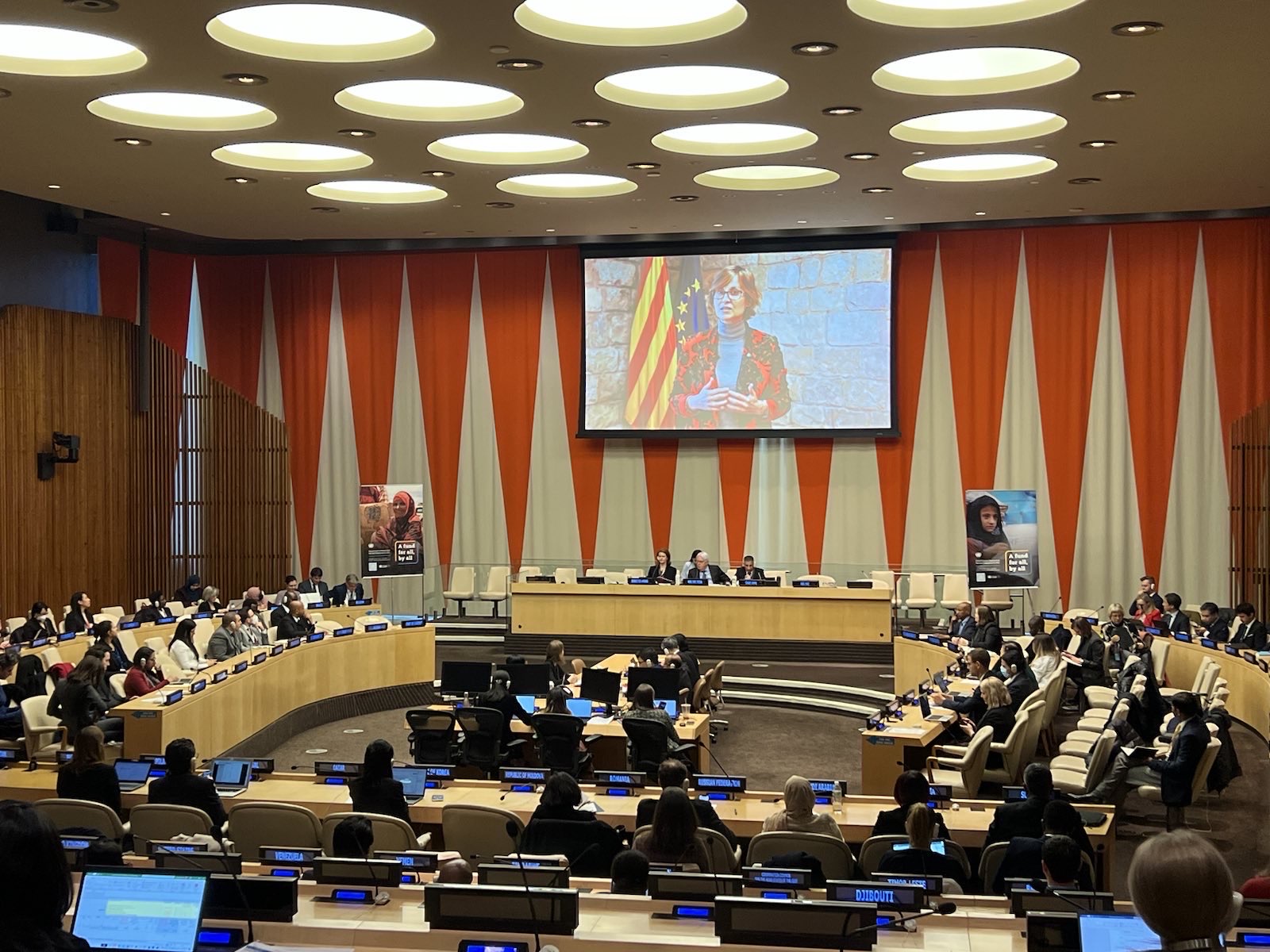- It is the sixth contribution to this United Nations fund made by the Catalan Government, which has contributed a total of 1.7 million euros since 2018
- In her speech, the head of Foreign Action and the EU highlighted the contribution of subnational governments to multilateralism and to the United Nations system

The Minister of Foreign Action and the European Union, Meritxell Serret i Aleu, renewed this Friday the commitment of the Government of Catalonia with the United Nations Central Emergency Response Fund (CERF) with a new contribution of 290,000 euros for 2023. The Minister made the announcement within the framework of the CERF 2023 High-level Pledge Event, a meeting of donors that aims to mobilize financial resources to ensure that the Fund, with which the Government has been collaborating since 2018, can continue to respond to humanitarian emergencies next year. During her speech, Serret stressed that CERF is "crucial in alleviating the suffering of those who need it most in providing assistance in emergencies", especially in a context in which global challenges are increasingly complex. "We cannot look the other way when multiple crises affect, once again, the most vulnerable," added Serret, who stressed the need to "sustain this global solidarity".
This is the sixth contribution that the Catalan Government makes to CERF: since 2018 Catalonia has made, through the Catalan Agency for Development Cooperation, annual contributions of 250,000 euros, in 2018, and 290,000 euros in 2019, 2020, 2021 and 2022. Adding the commitment for 2023, the Government has contributed a total of 1.7 million euros to this United Nations fund. Since its creation in 2006 under the slogan "a fund for all, by all", CERF has channeled $8 billion in assistance to millions of people in more than 100 countries and territories. Since 2006, global humanitarian needs have increased tenfold.
In fact, according to a 2022 report by the United Nations Office for the Coordination of Humanitarian Affairs, 274 million people will need humanitarian protection this year, a significant increase from last year's figure (235 million people), when it was already one of the highest in decades. This is the same line recently described in UNICEF's latest Humanitarian Action Report 2023, which warned that the world is facing the worst humanitarian crisis since World War II. Today's event, which was held in hybrid form at the UN Economic and Social Council headquarters in New York, and was available live on UN Web TV, featured a keynote address by UN Secretary-General António Guterres. The Head of the Delegation of the Government of Catalonia to the United States and to Canada, Isidre Sala, attended in person the event in New York.
In her speech at the high-level event, Minister Meritxell Serret also took the opportunity to highlight the contribution of subnational governments to multilateralism and to the United Nations system. "In the face of global challenges, multilateral responses are more necessary than ever", to which "the Government is firmly committed". In this sense, Serret pointed out that Catalonia "has a long experience in cooperating with United Nations agencies" and this fact "is an example of the valuable role" of governments such as the Catalan government in the multilateral system. The minister also called for "acting together to make the world more solidary, fair and prosperous," and made a commitment: "Catalonia is ready and committed to do so with all of you."
A fast and flexible response
The CERF is a basket fund integrated into the United Nations Office for the Coordination of Humanitarian Affairs (OCHA), the agency that coordinates humanitarian action on a global scale. The government's contribution to CERF is a way of articulating the response to emergencies through multi-donor funds. The CERF is based on voluntary donations from public administrations and private actors that are distributed periodically to ensure a rapid, flexible, and people-based response to humanitarian emergencies. The fund prioritizes responses that involve reducing loss of life, reinforcing the response required during critical times and strengthening key elements of humanitarian response in underfunded crises.